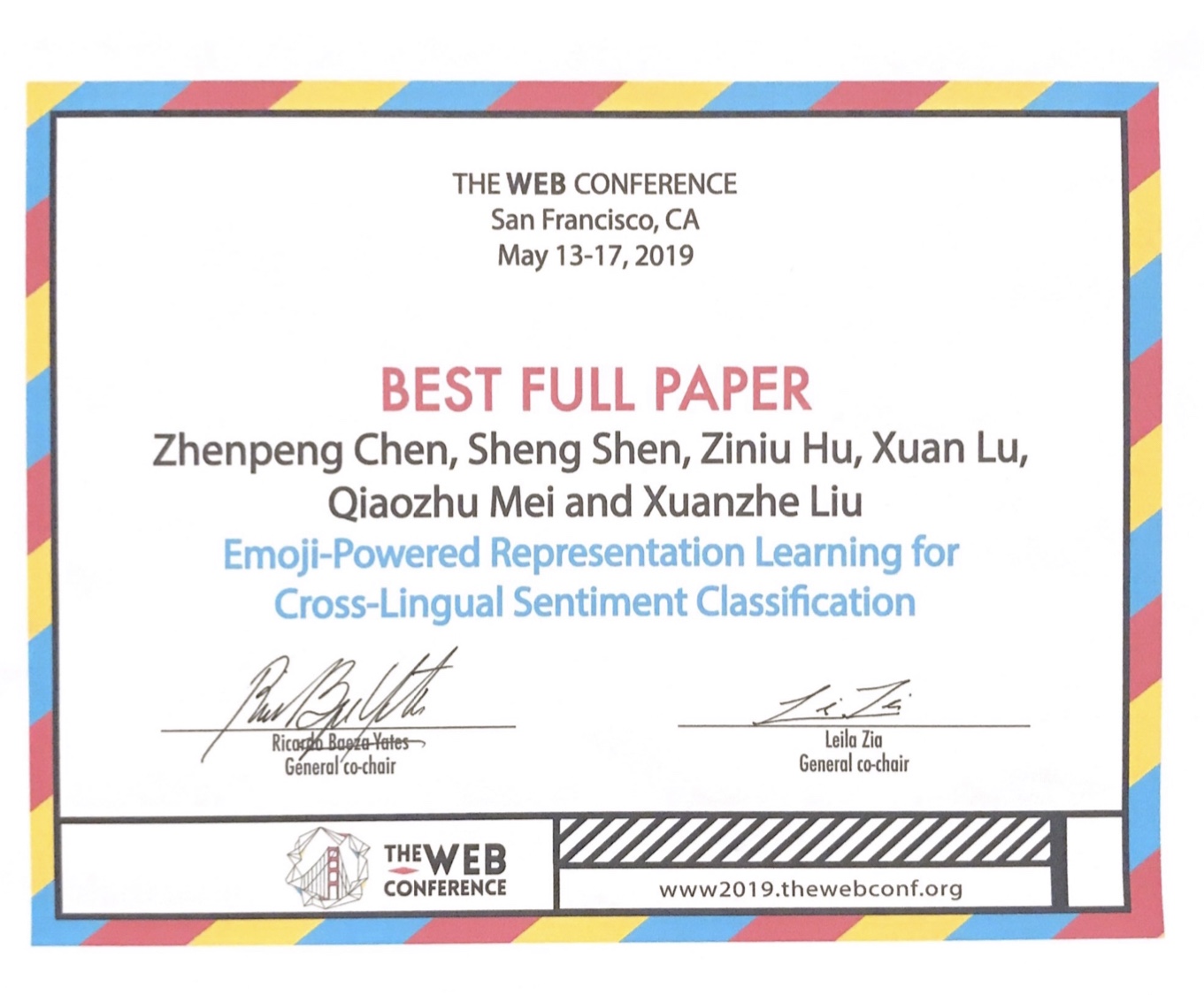On May 17, 2019, at the 28th International Conference on World Wide Web (WWW 2019) in San Francisco, USA, the paper "Emoji-Powered Representation Learning for Cross-Lingual Sentiment Classification" from the research group directed by Professor Xuanzhe Liu won the Best Paper Award.
The WWW Conference is one of the top-tier conferences in the computer and Internet fields. It is listed as a rank A recommended academic conference by the China Computer Federation. More than 1,600 papers were submitted to the conference this year, and only 2 best papers were selected. The award-winning papers received the "Strong Accept" from all three reviewers and finally stood out. It is reported that this is the first time in the history of WWW that a Chinese academic research institution has won this honor. In 2019, it is also the 30th anniversary of the birth of the World Wide Web. It is of special commemorative significance to win the Best Paper Award.
In a dynamic, open and changeable Internet environment, software systems need to deeply and accurately perceive and understand user context (including the state of the environment and user behavior) to provide services more intelligently. As an important aspect of user context awareness and understanding, sentiment analysis has received extensive attention from researchers in many fields including data mining, system software, human-computer interaction, etc., and has become a cross-research hotspot. However, the existing work is difficult to tackle the imbalance of labeled texts in different languages. More specifically, there are way more labeled examples in English than in other languages, which makes sentiment analysis in other languages far behind. Although machine translation technique can facilitate cross-language sentiment analysis and ease the research inequality, it is still difficult to capture language-specific sentiment information of the non-English languages. Unlike any existing method, the winning paper starts with the most widely used interactive language, i.e., emojis, and proposes an emoji-powered representation learning approach that can learn emotional knowledge from public English corpus data and then transfer the learned knowledge to other languages, so as to effectively establish an "emotional bridge" between users who hold different languages on the Internet.
In 2016, the research group found that emoji is becoming a new "universal" language when they conducted research on mobile systems and services, and that it is the most widely used interaction method for users (most input methods have built-in emoji). The research group believes that emoji can not only make expression more vivid, but also can be used as a new "soft sensor" to sense and understand the user's situation. In particular, with the increasing attention to the security and privacy of user data, such as the introduction of General Data Protection Regulation (GDPR) and other laws and regulations, traditional methods may not be applicable due to the usage of user privacy data. However, emoji can be leveraged to avoid the usage of these sensitive data to a certain extent. With emoji as the starting point for understanding and analyzing user situations, the research team has formed a series of research results in the past three years, which have been successively published at top-tier international conferences such as WWW and UbiComp.
The first author of this paper is Zhenpeng Chen, a Ph.D. student in the School of Electronic Engineering and Computer Science of Peking University. Professor Xuanzhe Liu and Professor Qiaozhu Mei from the University of Michigan are the corresponding authors.

